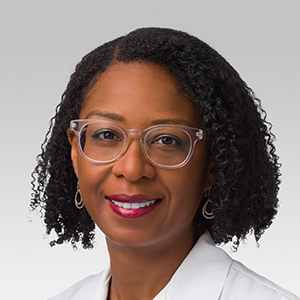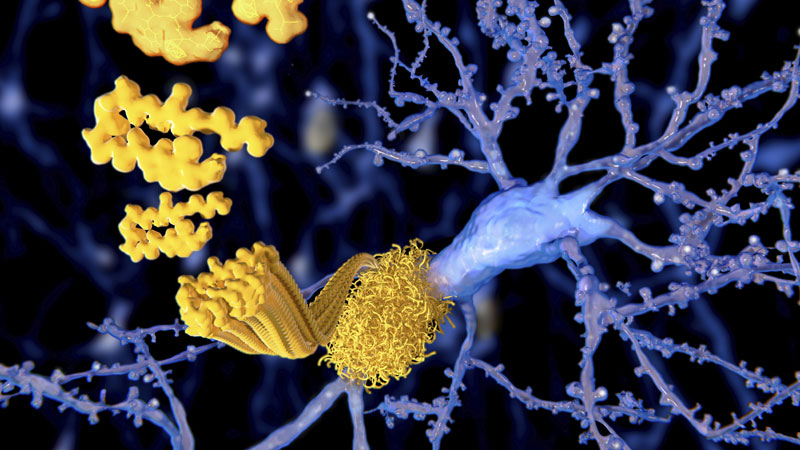Transplant Access Program Pioneers Change for Black Patients
Advancing Health Equity
Published May 2024
People who identify as Black make up the largest group of people in need of an organ transplant, but are less likely to receive a lifesaving transplant due to a wide range of barriers leading up to the point of transplantation. Two of the biggest barriers? Access to care and trust in care.
Dinee C. Simpson, MD, a Northwestern Medicine transplant surgeon is working to change this. Dr. Simpson is the first Black female transplant surgeon in Illinois and is the founding director of the Northwestern Medicine African American Transplant Access Program (AATAP). The program helps Black patients navigate the transplant process and achieve optimal health outcomes through kidney and liver transplantation. AATAP focuses on kidney and liver transplantation.
Our mission is to mitigate the disparities.— Dinee C. Simpson, MD
“Our mission is to mitigate the disparities,” says Dr. Simpson. “I cannot claim that we will get rid of them altogether because when you look at the barriers that Black patients face, as they are published in the literature, there's a long list.”
Before the program was founded, Dr. Simpson pulled every single piece published related to disparities in transplant care — it was over a thousand papers — read them and then made a spreadsheet of the different documented reasons why Black patients were not getting transplants. She identified a few things that a single program like AATAP can focus on to make an impact. “The number one that we really work hard to address is distrust in the healthcare system — and this isn't exclusive to transplantation,” she says.
Dr. Simpson says that when she meets Black patients in the transplant clinic, they often tell her she is the first Black physician they've ever seen. “Me looking like my patients goes a long way,” she says.
AATAP Access Points
Dr. Simpson began building AATAP in 2018, and it was officially launched in 2019 at Northwestern Memorial Hospital in downtown Chicago. The program now also includes a satellite clinic in Oak Lawn, a suburb on the southwest side of Chicago.
The Oak Lawn location is strategic. “It’s where Black communities tend to be clustered,” says Dr. Simpson. “But the main reason is ease of access to start a transplant evaluation, which is one of the barriers that communities of color face.” Having the satellite clinic helps minimize travel logistics and costs that are often involved in coming to the downtown location. “Patients still need to come to Northwestern Memorial Hospital when it comes time for transplant and for follow-up, but for that initial intake visit it’s really been fantastic for the patients in the vicinity to go to the Oak Lawn location,” explains Dr. Simpson.
Receiving Care Through AATAP
First, potential AATAP patients must meet the same requirements as all patients to be listed for a donor organ and to be approved for transplant surgery. AATAP transplant services differ from traditional approaches because they are geared toward Black patients who are having difficulty accessing and navigating the transplant process.
Timing is important, too. With kidney disease, Dr. Simpson says there is an ideal time to perform a transplant. “Believe it or not, it’s before they ever see a day of dialysis,” she explains. “A transplanted patient will live two and a half times longer than a patient who stays on dialysis. That's not two and a half years. That's two and a half times longer.”
Before they can participate, people must be referred to AATAP, but they do not have to be patients at Northwestern Medicine.
Patients can be referred by:
- Themselves: Any person who believes they can benefit from the program may self-refer.
- Former or current AATAP patients: Those who have benefited from AATAP are most likely to understand the value of the program and identify others who can benefit.
- A physician or other medical professional.
Program Expansion
Since its inception, AATAP has arranged for 50 kidney and liver transplants. The AATAP team has also grown to include a dedicated social worker who helps connect patients to resources — from insurance and transportation assistance to support groups — as well as a health literacy coach who helps patients understand and navigate their diagnosis and the treatment process, which can be quite complex.
“AATAP has seen fantastic growth in many ways, not just in patient access and outcomes, but also in clinician knowledge and behaviors when it comes to recognizing health inequity and creating change,” says Dr. Simpson. “I’ve come to realize that the health equity work I do in the transplant space is highly adaptable across many disease states and to different marginalized communities.”
Learn more about AATAP.







